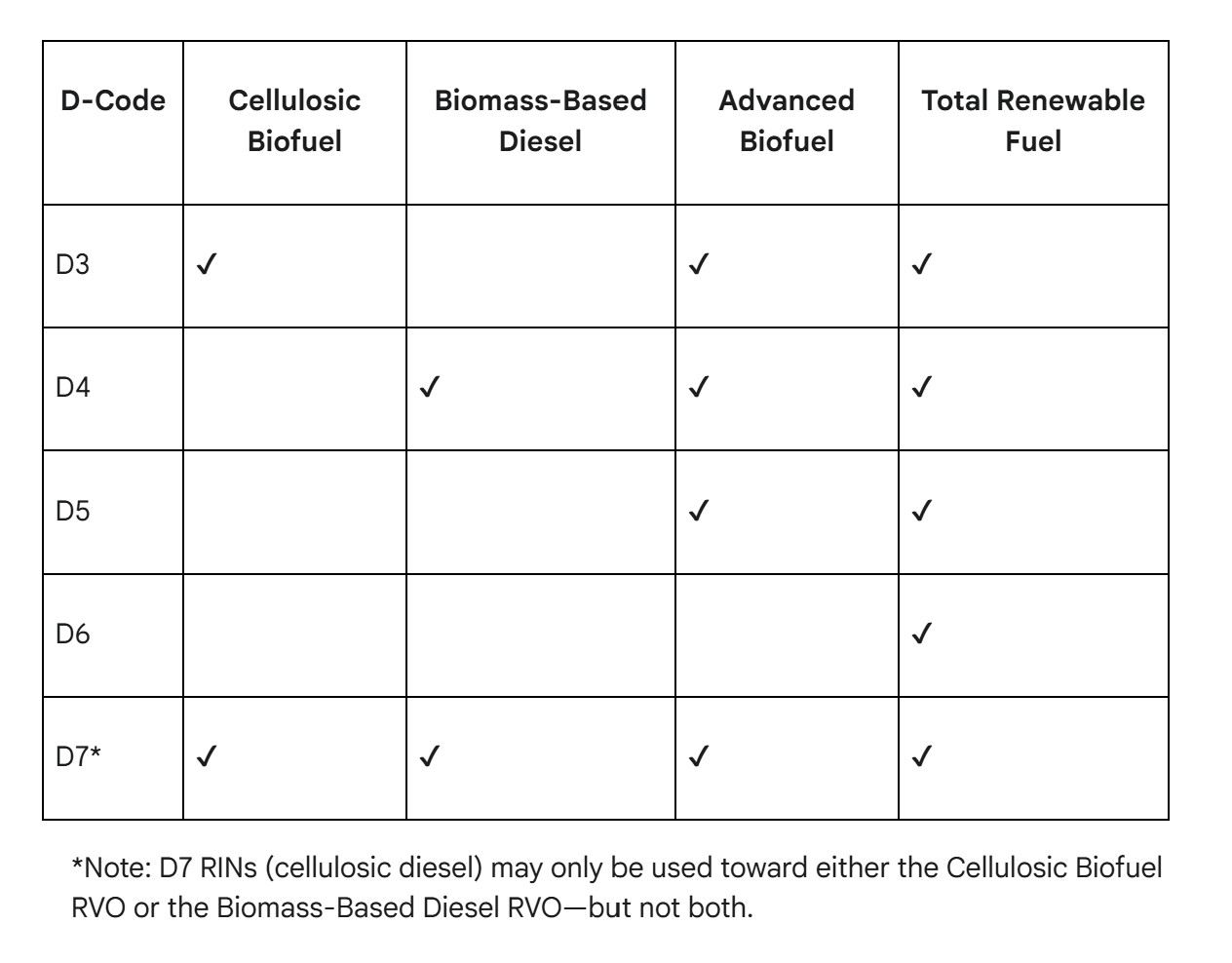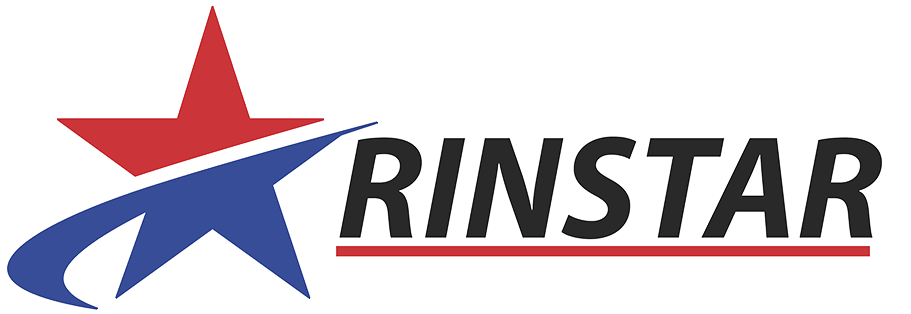Each RIN is tied to a specific type of renewable fuel, identified by what’s known as a “D-code.” These D-codes represent key details such as the feedstock used, the production process, and the level of greenhouse gas (GHG) emission reductions achieved. For producers, traders, and obligated parties, understanding how D-codes align with fuel categories is a critical part of navigating the RFS.
In this article, the RINSTAR team will walk you through the basics of D-codes, how they relate to different fuel types, and how they fit into the RFS’s nested compliance system. And if it still feels a bit complex, don’t worry—we’ll wrap up by explaining how RINSTAR can support you every step of the way.
Fuel Categories and D-Code Breakdown
The RFS program defines four main categories of renewable fuel, each with specific lifecycle GHG reduction thresholds compared to a 2005 petroleum baseline. These categories are supported by corresponding RIN types, known as D-codes:
- D3 – Cellulosic Biofuel – Produced from cellulose, hemicellulose, or lignin, these fuels must achieve at least a 60% GHG reduction. Includes cellulosic ethanol and renewable natural gas.
- D4 – Biomass-Based Diesel – Includes biodiesel and renewable diesel, requiring at least a 50% GHG reduction.
- D5 – Advanced Biofuel – A broad category excluding corn starch ethanol, including sugarcane ethanol and other fuels with at least a 50% GHG reduction.
- D6 – Renewable Fuel (Conventional Biofuel) – Typically includes corn starch ethanol, which must achieve at least a 20% GHG reduction if produced in new facilities or capacity expansions after December 19, 2007.
- D7 – Cellulosic Diesel – A subcategory of both cellulosic biofuel and biomass-based diesel, eligible when diesel is derived from cellulosic biomass.
These D-codes are not just labels—they determine how RINs can be used to satisfy Renewable Volume Obligations (RVOs). Because the RFS is a nested standard RINs that meet more stringent requirements (such as D3 or D4) can also be applied toward broader categories like Advanced Biofuel or Total Renewable Fuel.
Nested Standards and RIN Flexibility
The nesting structure allows higher-value RINs to fulfill multiple RVO categories. For example:
- D3 and D7 RINs may be used to meet Cellulosic Biofuel, Advanced Biofuel, and Total Renewable Fuel standards.
- D4 RINs (Biomass-Based Diesel) may also satisfy Advanced Biofuel and Total Renewable Fuel obligations.
- D5 RINs serve Advanced Biofuel and Total Renewable Fuel RVOs.
- D6 RINs are limited to meeting only the Total Renewable Fuel requirement.

Simplifying with the CBAR Framework
To simplify the four categories, the acronym CBAR is often used:
- C – Cellulosic Biofuels (D3, D7): ≥60% GHG reduction
- B – Biomass-Based Diesel (D4): ≥50% GHG reduction
- A – Advanced Biofuels (D5, plus D3/D4/D7): ≥50% GHG reduction
- R – Renewable Fuel (D6): ≥20% GHG reduction for new capacity
Each fuel type must meet specific pathway requirements, feedstock qualifications, and lifecycle GHG performance compared to its petroleum equivalent (e.g., ethanol vs. gasoline, biodiesel vs. diesel).
Each renewable fuel type has distinct requirements, and the nesting structure provides flexibility for compliance. By aligning your RIN strategy with these categories—C for Cellulosic, B for Biomass-based Diesel, A for Advanced Biofuel, and R for Renewable Fuel—you can ensure accurate reporting, effective compliance, and optimized use of renewable fuel credits. Whether you’re generating, trading, or retiring RINs, knowing how D-codes function is key to success in the renewable fuels market.
At RINSTAR, we offer a range of RIN management services tailored to your specific fuel types and business needs. Our platform makes it easy to track assigned, separated, and qualified RINs, while providing clear, daily inventory insights and compliance reports. Whether you’re registering batches, retiring RINs, or submitting data to the EPA through EMTS, RINSTAR supports every step of the process.
With automated tools, expert guidance, and intuitive reporting features, we take the complexity out of compliance—so you can focus on growing your business with confidence.
Let us simplify RIN management for you. Reach out today to connect with our team or request a demo!
